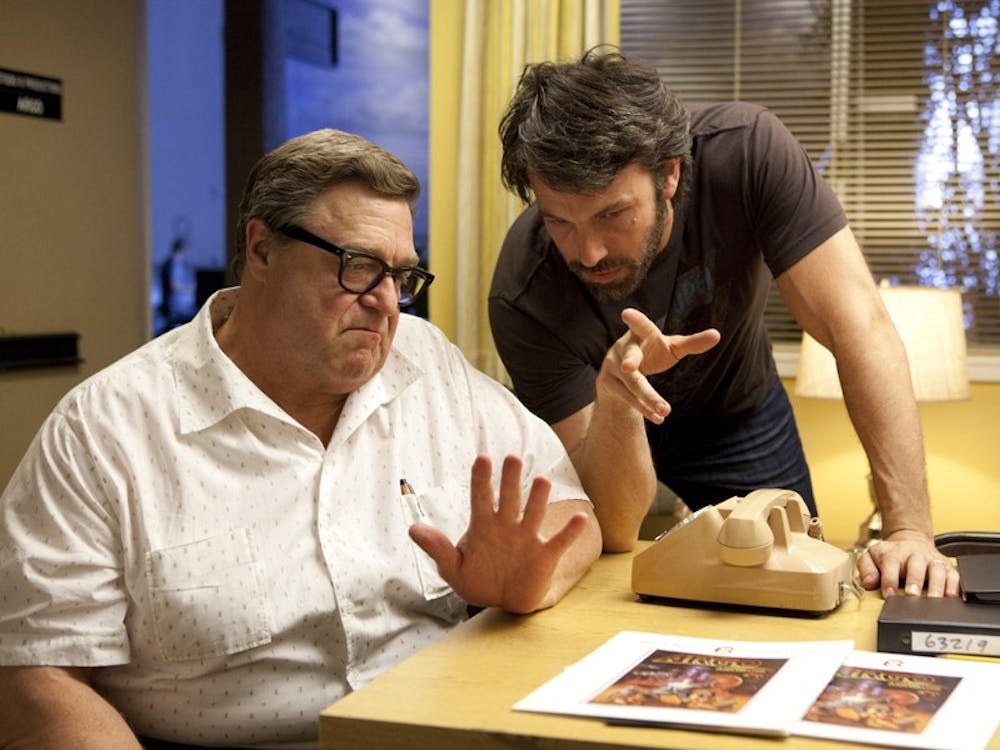Historical drama draws on real-life events to create film worthy of Oscar nomination
When it comes to the “based on a true story” label, it’s often used as a meaningless citation, an angle to attract people who want to hear an interesting story about something that happened in real life.
But for “Argo,” “based on a true story” is everything; it presents what the filmmaker has to say through a declassified historical event that’s relevant to this day and age. The way the movie entertains while expressing its importance makes it worth the two hours.
Ben Affleck has already proved his directing chops with his past two films, “Gone Baby Gone” and “The Town.” But “Argo” is the film that establishes Affleck as a well-respected director. The editing, the pacing, the cinematography and the acting, as well as political insight and anti-Hollywood satire, all make “Argo” worthy of its hype and its well-deserved place in the Oscar race.
The film begins with a boldly graphic prologue explaining the origin of the Iranian Islamic revolution, when militant students stormed the U.S. Embassy in Tehran in November 1979. Six of the Americans who escape the takeover take refuge in the Canadian ambassador’s home, prompting the state department and the CIA to attempt a rescue mission that involves bicycles and agricultural missions.
CIA agent Tony Mendez (Affleck) has a better idea. With CIA director Jack O’Donnell (Bryan Cranston), Hollywood make-up artist John Chambers (John Goodman) and producer Lester Siegel (Alan Arkin), Tony plans a very implausible cover story for getting the hostages out of Tehran: they are a Canadian film crew scouting out locations for their fake science fiction film, titled “Argo.”
The film is a two-part story. The first half shows the comical imagining of the entire operation. This is where the satire comes into play, as both John and Lester treat this fake production as if they are trying to create the next “Star Wars,” poking fun at the fluent nature of real-life filmmaking. The second half of the film is where the tension and thrills appear.
Affleck confidently handles this mixture of political-animal thriller and anti-Hollywood satire. To present both inside the same film requires displaying two entirely different tones, and Affleck manages to juggle both without being too serious, expressing a desire to entertain while also sharing a dark moment in history.
Steering clear of any standard techniques from within the political, espionage thriller, “Argo” features no shoot-outs, explosions or fist fights. All of the thrills the movie delivers come from suspense: anything can go wrong with this operation at any given moment. It may not be as thrilling as people hope, since most Americans are familiar with this declassified story, but we’re still dealing with smart, sophisticated filmmaking here.
Affleck may be better behind the camera than he is in front of it, but that doesn’t mean he’s a bad actor. He’s just seen too many ups and downs in his career while he was the paparazzi’s favorite pretty boy (you know, his “Bennifer” days).
Still, Affleck gives a great performance here with his character’s calm, calculating persona. Goodman and Arkin deliver the best laughs with their interactions, portraying characters that are fusions of various Hollywood types. Some of the best scenes in the film belong to Cranston as Tony’s boss, delivering an intense performance as a man caught in the middle of government bureaucracy.
Not only does Affleck try to capture the feel of the ’70s within the film with obsessive attention to detail, but he makes the overall viewing experience of the film feel like we have been blasted back in time. The entire picture is intentionally grainy and we even see the old Warner Brothers logo at the start of the film. Archive footage of President Jimmy Carter, the Shah and old news reels appear throughout “Argo,” too.
“Argo” is much more than a political thriller. It’s a reminder of one of the most recent dark moments in American history, one that deeply damaged the relationship between America and the increasingly radicalized Muslim world. We see the outrage against American imperialism, while Americans behind the walls of the embassy are shredding documents.
In this post-9/11 world, movies strive to capture this type of relevancy regarding America’s current struggle with foreign relations, but fail to execute it in a fashion that will get audiences into the theaters. Affleck successfully takes advantage of this and successfully re-creates the moment when America’s struggle with Muslim rage first reached a critical point in the form of comical, smartly directed mainstream thriller.

